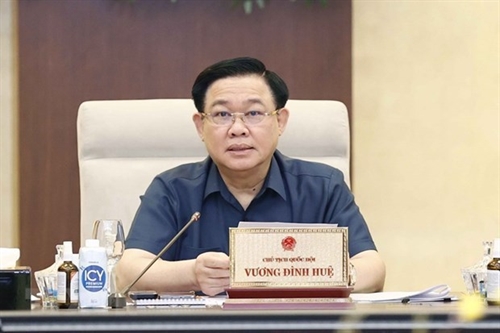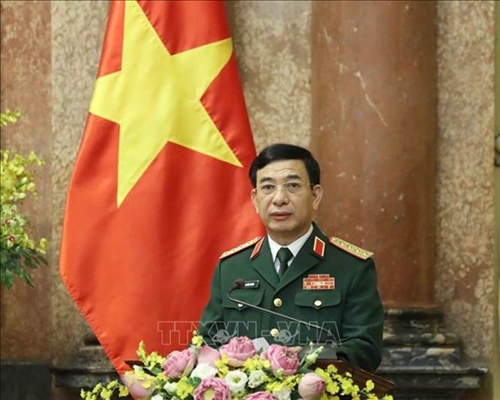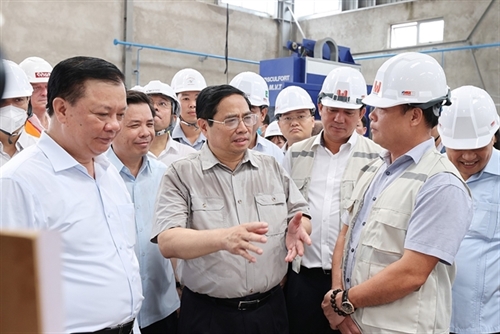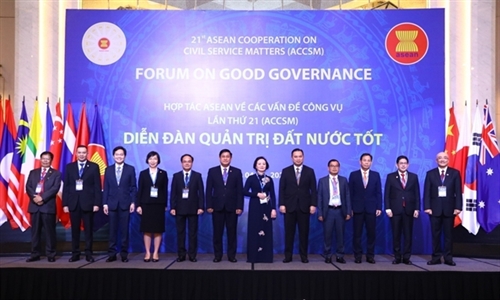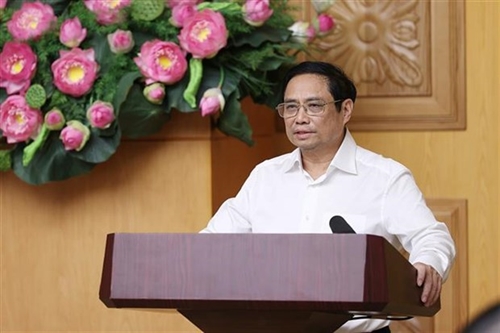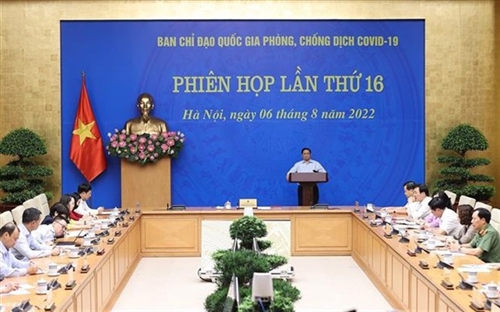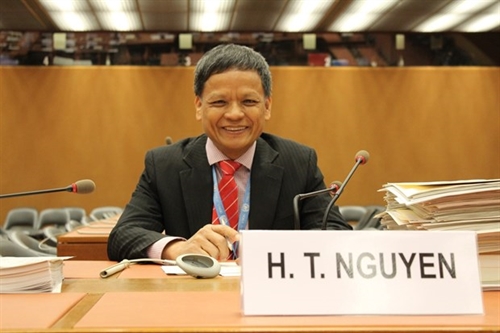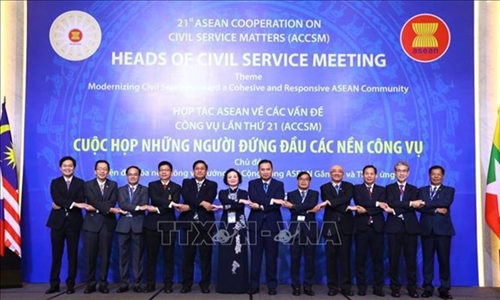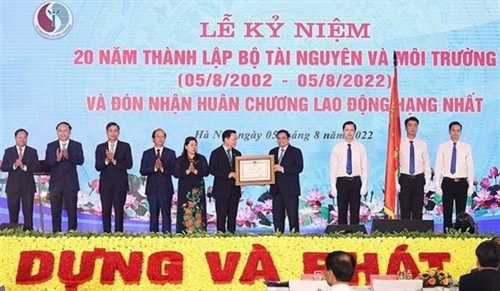Prime Minister Pham Minh Chinh described digital transformation as an important tool for the building of an independent and self-reliant economy and the extensive and effective integration into the world.
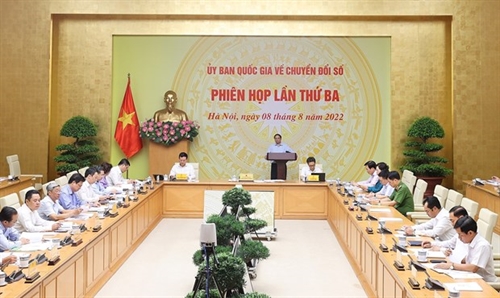 |
| PM Pham Minh Chinh chairs the 3rd meeting to access the country's digital transformation on August 8 in Hanoi.__VNA |
He made the remarks while chairing the third meeting to assess the digital transformation pace in the first six months of 2022 and outline the tasks ahead on August 8 in Hanoi. The meeting was held online, linking the Government Office with the People’s Committees of provinces and centrally-run cities across the country.
He noted that during the development of the pandemic, digital transformation had become an urgent need to effectively prevent and control the pandemic while maintaining and promoting socio-economic development.
The Government leader affirmed that digital transformation was a big policy of the Party and State, which must be implemented regularly and continuously in a fast and effective manner.
Chinh said that in the first six months of this year, the country’s digital transformation had achieved basic results, and the awareness of the importance of digital transformation had changed drastically at all levels and sectors.
The Digital Transformation Steering Committee of 22 ministries, branches and 63 localities were established and put into operation.
The improvement of institutions and policies had been paid much attention to achieve positive results and create a legal framework for digital transformation.
The transformation of State management activities from the traditional method to the application of information technology and from paperwork to the digital environment had also been boosted and achieved initial results that were commendable. Many practical products and services had been offered to serve businesses and citizens in a timely and effective manner.
The Ministry of Information and Communications reported that digital transformation was promoted strongly and reaped encouraging outcomes in the first half of 2022.
So far, 100 percent of the enterprises have used e-invoices, and e-commerce revenue reached 11.27 percent of total retail sales (compared to the target of 7 percent), according to the report.
A total of 66 percent of the people aged 15 and above have payment accounts (one percent higher than the target), 70.91 percent of the adults own smartphones (compared to the target of 85 percent), and 71.75 per cent of all the households use broadband cable internet (compared to the target of 75 percent).
Digital infrastructure has continued to be improved, with fixed and mobile broadband internet speeds respectively reaching 71.79 Mbps and 35.29 Mbps, up 32.7 percent and 4.7 percent year on year.
Thirty-five national digital platforms have been developed, of which 31 have become operational and four on a trial basis.
Ministries and sectors have also coordinated to build 50 other platforms, including 18 serving the formation of a digital government, 16 for a digital economy, and 16 for a digital society.
Breakthroughs have also been recorded in the digital economy, whose added value has made up about 10.41 percent of GDP, according to the ministry.
However, certain difficulties and shortcomings still exist, including the shortages of capable personnel and funding for the task and the lack of monitoring mechanisms.
PM Chinh, who is also head of the national committee, said digital transformation needed constant reforms, a breakthrough mindset, a strategic vision, proactiveness, and creativity.
He underlined the importance of mobilizing every resource for the work, especially through the public-private partnership, while ensuring harmonious interests among the State, people, and enterprises.
He asked ministers, heads of ministry-level bodies and Government agencies, chairpersons of the provincial-level People’s Committees, and the steering committees for digital transformation of ministries, sectors, and localities to drastically carry out the assigned tasks under the national digital transformation program, the national strategy for developing the digital Government, and the national strategy for developing the digital economy and society to meet the targets for 2022.
The Government leader also gave out duties to each ministry and sector while requesting businesses, particularly those in the information, communications, and science-technology industries, to play an active role in the national digital transformation process.-(VNS/VLLF)
